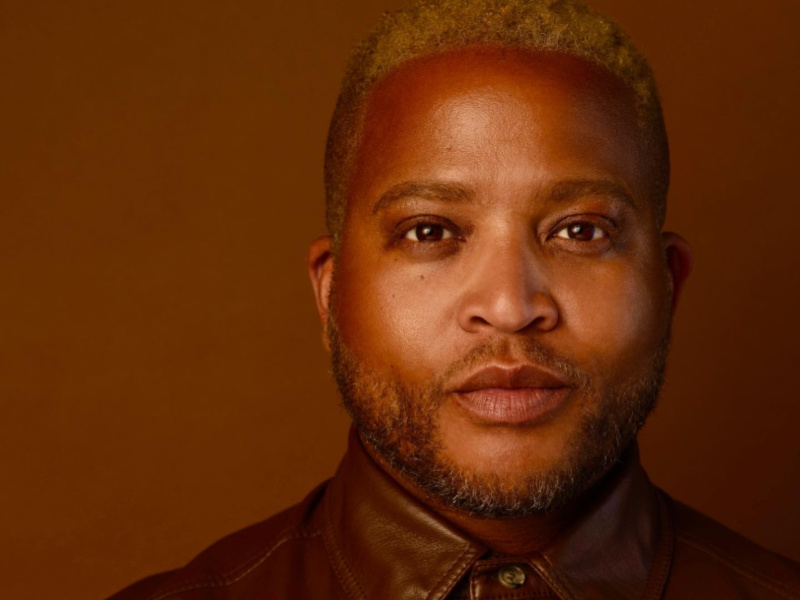Diana Marszalek 21 Jun 2023 // 6:03PM GMT

Stefan Embry is Praytell’s chief of staff and leads new business development & social purpose for the agency’s corporate reputation practice. Over his 13-year career in the comms industry, Stefan has tackled issues like health equity, LGBTQ+ rights, education access, and DEI. You can read our September 2020 interview with Embry here.
Three years ago, the PR industry was at an inflection point in terms of DEI. Where is it now? What’s your assessment of the progress that has (or hasn’t) been made in diversifying the industry since that time.
From a brand perspective, it’s evident that there has been a decline in DEI commitments and the courage to back them up. In 2021 we saw a welcome and overdue trend of DEI mandates surging 'above the fold' in RFPs from across the spectrum of comms work. Team representation, creative built with diverse populations in mind, community commitments — they all seemingly mattered.
It was an incredibly exciting time and the kind of practice that could have pushed the agency industry into a new direction had it held up. It didn't. We've seen gradual but unmistakable erosion of that momentum. From both a professional and human perspective, it’s been incredibly disheartening to witness DEI treated as "pitch candy," only to see that same fervor for action fade away once day-to-day operations kick off.
Both brands and agencies have a responsibility to ensure DEI conversations don’t stop once the procurement process ends.
The PR industry was jarred into prioritizing DEI due to events of tremendous magnitude, George Floyd’s murder and the rise of the Black Lives Matter movement. Does that urgency still exist? Does the early momentum exist?
I think the urgency that initially drove the PR industry to prioritize equity and diversity fell as economic fears rose. And I think that early momentum has been hindered by a collective adherence to white heteronormative respectability as our north star, impeding meaningful progress. While there may be a willingness to launch DEI initiatives, hire DEI professionals, and participate in trainings, we must be willing to actively change the way we receive those who are different from us for any of these efforts to truly matter.
If we don’t address the culture of our industry, we risk falling behind the larger culture we claim to know so well. That means not just leaving it to people of color and queer folks to solve issues of diversity, but for white colleagues to do so as well — even when we’re not in the room.
On a positive note, I’ve been heartened by how queer colleagues have organized and used their power to communicate hot button issues to help combat the onslaught of dehumanizing rhetoric in our institutions. Over the past few months Praytell’s PRISM ERG leads Shahamat Uddin & Kiku Gross organized a virtual drag show that raised over $5k for the Tennessee ACLU and they recently hosted learning sessions with folks from The National LGBTQ+ Bar Association, and University of Pennsylvania’s EIDOS LGBTQ+ Health Initiative. Their efforts in providing critical perspective to industry colleagues are what’s needed to make an impact.
What do you see as the challenges in pursuing this change? Has anything surprised you?
I think our biggest challenge is our unwillingness to abolish elements of traditional gatekeeping. Unwritten codes of conduct on how to break through in our industry and an unwillingness to share those codes need to be examined. We have to be honest with ourselves on the best ways to allow more people into our spheres.
Gatekeeper bias isn’t an overt form of discrimination rather a symptom of risk aversion — to recreate past successes or scenarios we hire, promote, and celebrate employees like the ones that have performed in the past. We try to maintain our culture by finding like folks that will ‘fit’ with existing employees. Even with the best intentions surrounding diversity, our risk aversion and lack of dedication to building new systems or processes will continue to hamper diversity.
Do you believe that true DEI in PR is attainable?
Yes, but we need actual accountability to achieve material change. Accountability at all levels — of course for executives and procurement but also for hiring managers, people managers, creatives, strategists and publicists alike. And that accountability needs to be real, i.e. financial, performance, etc.
Lastly, we need to recognize that DEI is an ongoing practice not an occasion. February, May and June are not the only times to think about diversity. Creating an equitable workplace community takes time, ongoing examination and investment. Being a good institutional citizen shouldn’t stop when the cameras stop rolling.
I do find so much inspiration in our emerging leaders, especially our corporate reputation group. They have an innate understanding of culture and corporate responsibility that goes far beyond that of my own as a young account executive. They have a fearlessness in broaching sensitive topics and speaking up for diverse communities. And they seamlessly combine old fashion know-how with a fresh healthy skepticism for human-institution relationships. My plan? Listen and learn.



































.jpg)


















